The NGO SOLIDARITÉS INTERNATIONAL brings aid on a daily basis to the Ukrainian civilian population, the first victim of the conflict. Discover a gallery of portraits and testimonies collected by the teams on site.
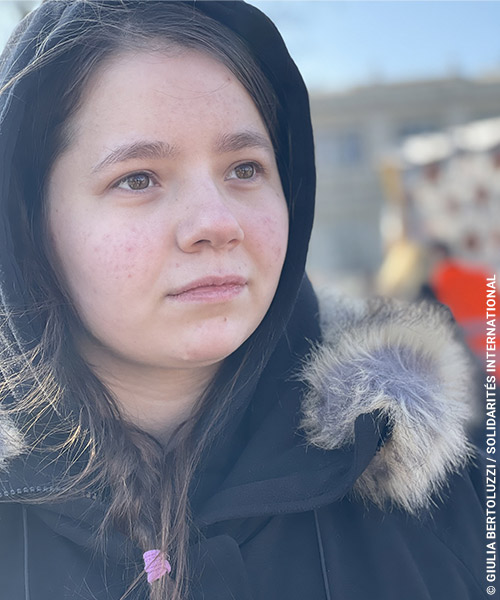
01. Katia fled the town of Druzhovka in the Donetsk region to join her mother in the train station in Lviv, Ukraine. “War broke out in my city, so my parents decided to move because they were very afraid. My mother didn’t want to go to Lviv by herself, so she asked me to go there so that we could meet there. When I arrived in this new city, I was lost and confused but a female volunteer welcomed me. [They gave me food and something to drink. I arrived at 3 am that night. The train was so crowded that I was literally pushed in. There were no seats available, so we slept in the aisle where the bags and suitcases were. It was really uncomfortable. […] I hope this will be over soon. I am really grateful for all the people who went to defend us, and the volunteers who cook for us or risk their lives. They are the only thing that keeps us going, without them it would be much worse. It’s really terrifying that in the 21st century something like this could happen. Who could imagine that?“
02. Natalia, a volunteer, is in charge of preparing meals in a former factory that has become a collective reception center supported by the NGO SOLIDARITÉS INTERNATIONAL: “Sometimes we lack basic products such as bread, butter, tea, coffee or sugar because these products are consumed very quickly. We have times when, for example there was no delivery of bread for two days or sugar for several days.” The meals Natalia distributes are prepared in advance by a local partner, Walnut House Foundation, a food service that has been involved in distributing food to displaced people since the beginning of the conflict.
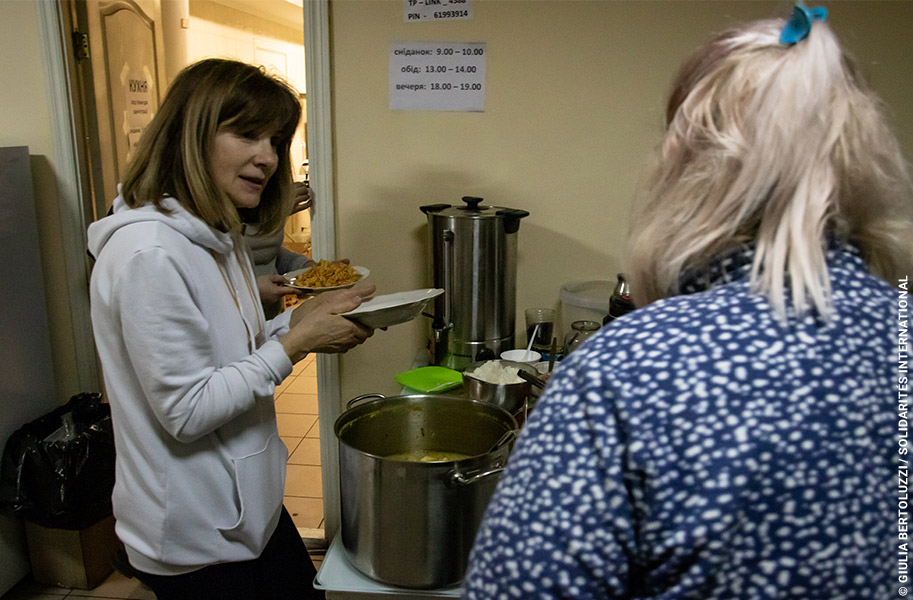
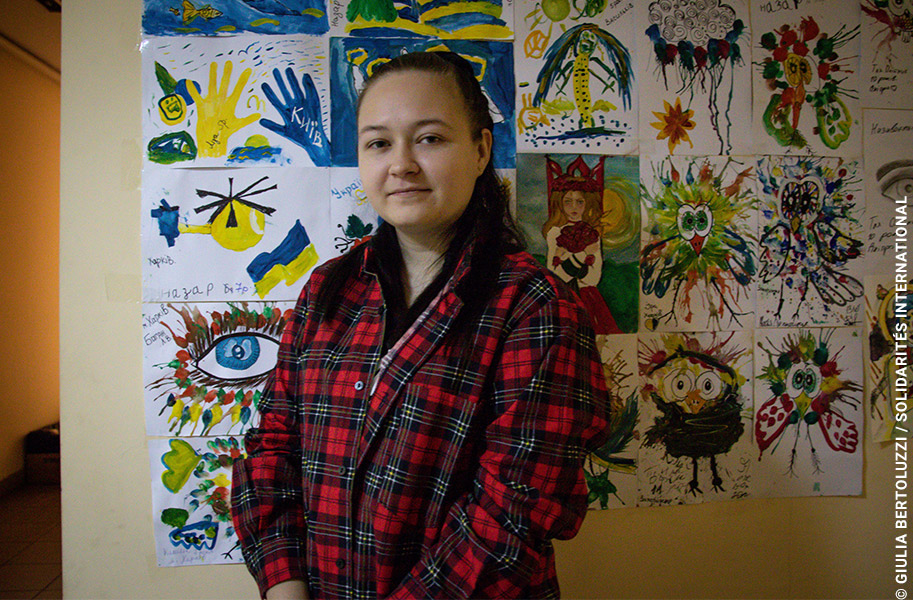
03. Valeria arrived in a reception center in Lviv, supported by the NGO SOLIDARITÉS INTERNATIONAL, after fleeing Kharkiv with her mother, father, grandmother and little sister. “On the morning of March 7, we set out for the train station because we could no longer stay in Kharkiv. It was difficult to get there because there were no cabs. It was really scary; the drivers were afraid to go out in the streets because we could hear gunshots coming from all directions. The battle was on, there were tanks everywhere in my street. It was hard to leave the house and everything I knew, but we packed up and left. So, my father drove us to the train station. When we arrived, we were waiting for the train to Poland but it was cancelled, so we decided to go to Lviv. […] The journey was very hard. Really hard. As the distance is long, there were many stops in the station and there were so many people! Everyone was sitting very close together with their belongings on them, our children and our animals on our heads. What a relief when we arrived in Lviv, it was incredible. We got off the train and in the square in front of the station, there were signs with telephone numbers [editor’s note: offering accommodation]. We called some of these numbers, there were no places everywhere of course but we found one that redirected us to this reception center. […] I don’t regret it, the people here are really nice. I am really happy to be here“.
04. Nazar is a special educator in the “Mria” education and rehabilitation center for children in Lviv, Ukraine, where the NGO SOLIDARITÉS INTERNATIONAL distributes meals. “Right now we have children coming from Lviv, and others from Donbass because of the situation in our country. […] We have taken them in and housed them here, thank God we have enough space and the possibility to provide them with everything they need. We also try to organize their leisure time and show them the city of Lviv where they have never been before. The air raid sirens disturb us from time to time and we have to hide the children as a precaution. […] They are a bit tense and restless as they are out of their comfort zone. Just imagine, they have come to a place totally different from what they know, they are not here just to travel. They don’t all have the opportunity to go back to their parents because some are orphans and some are sent by their parents to be safe.”
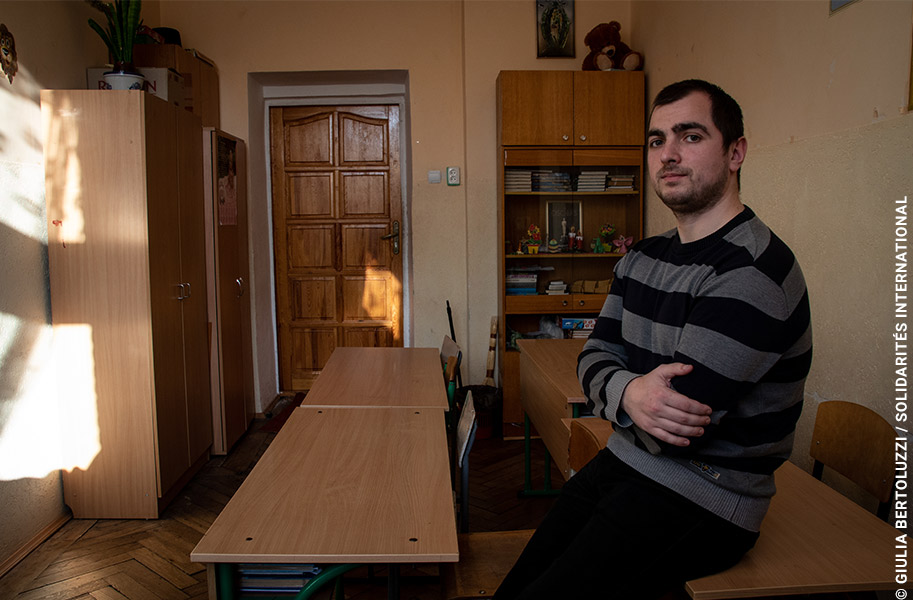
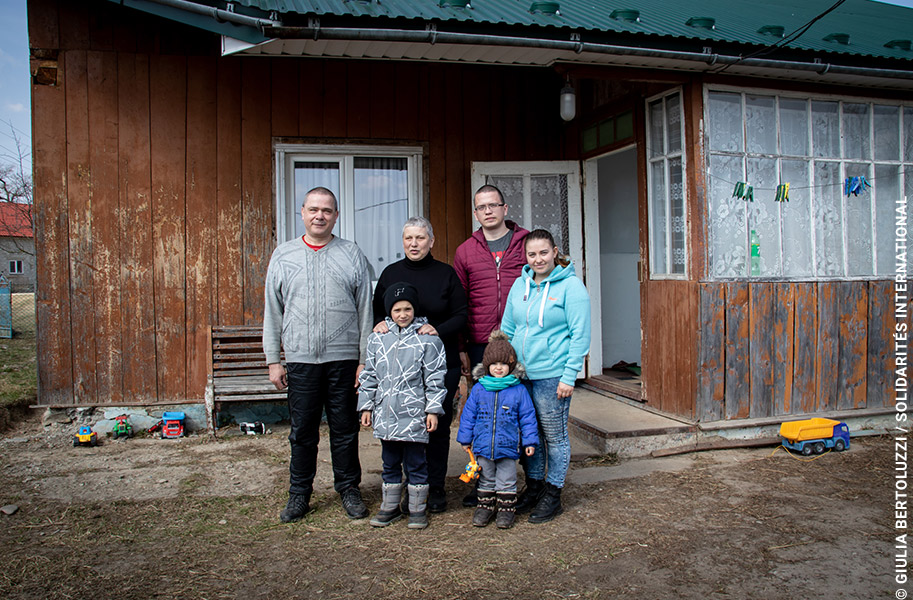
05.
Stepan and his family had to leave the town of Bila Tserkva because of the bombing and found refuge in the village of Vilshanik, Ukraine. “As soon as the war broke out, a base in our town was bombed, as well as a five-story dormitory building. A few dozen private houses were also bombed, so we decided to move away from here. We came to this village where the people welcomed us. They were very nice. We had tears in our eyes to see how hospitable they were. They gave us good food, tea and this house to live in. It’s warm and nice here. We have everything we need, including food items like potatoes, vegetables, cereals, pasta, meat and sugar. Everything is fine now. We have been in this house for a month.“
06. Valentina and Anatoly are staying in the church house in the village of Chernichva, Ukraine. “My name is Valentina and this is my husband Anatoly. We were living in the suburbs of Kiev and when the explosions started Anatoly’s blood pressure skyrocketed and his heart rate increased, he had a stroke. So, we made the decision to leave Kiev. On March 6, we went to the train station, took only medicines and documents, and boarded an evacuation train. We reached Rivne, then we took the suburban train to the Lviv region. […] At the station, there were a lot of people with many children. People were standing in the two trains we took and many were traveling with their pets, cats, dogs, and even rats. […] We took the first train, not minding where it went. The line for the Kiev-Lviv train was huge so we took the one going to Rivne.“
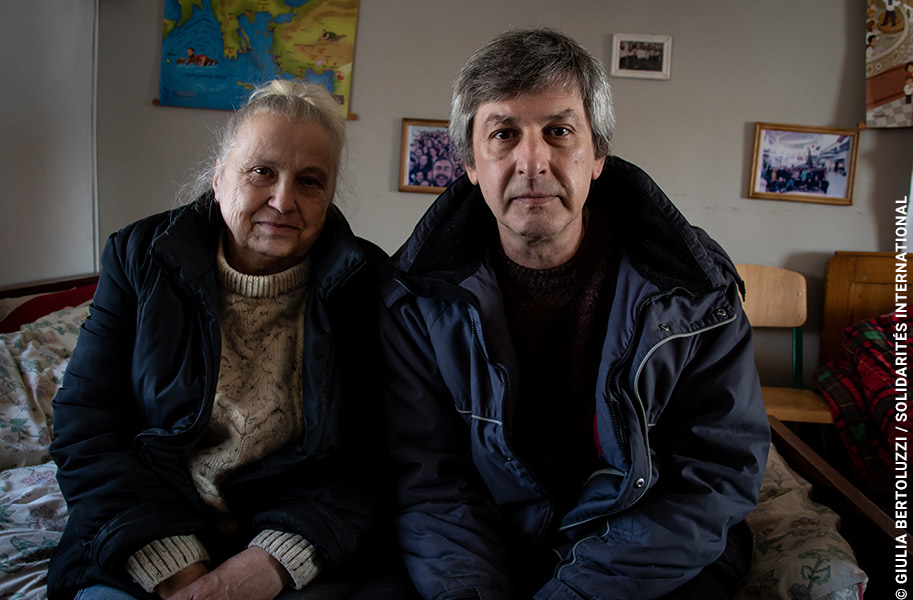
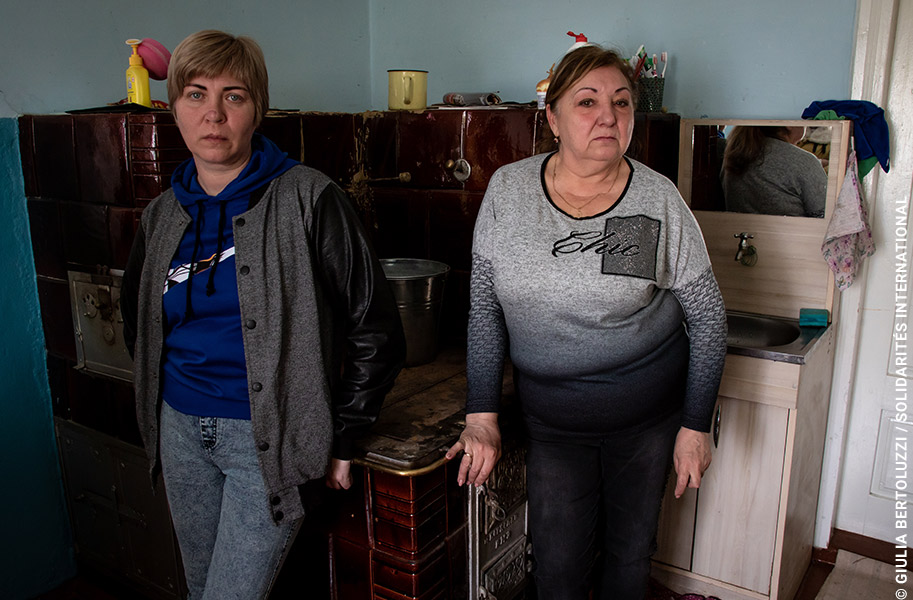
07. “Because of the bombing, my family and I left Kramatorsk, along with my sister and niece. We have small children. We spent 5 days in the basement. […] On March 1, my nephew called me and advised me to evacuate the city because something terrible was going to happen. In less than three minutes, we packed our bags and, with everything we had on us, we got out of the basement. We were taken by car to the train station. It was so crowded that it was impossible to get on the next train. We waited for the next one. The journey took us 2 days. The train went through Kiev, which was bombed at that time. We were not going anywhere; I mean, we did not know where we were going. By chance we arrived in Vilshanyk. People are so nice here, so hospitable. After living in Vilshanyk for a week, they found us this house. We installed the internet, so that the children can go to school. While we still have money, we buy groceries. We feel good here. At least, it is quiet here and we do not hear the shells, the noise of the fighter planes and the bombardments” say Ilyana accompanied by Elena, her daughter.
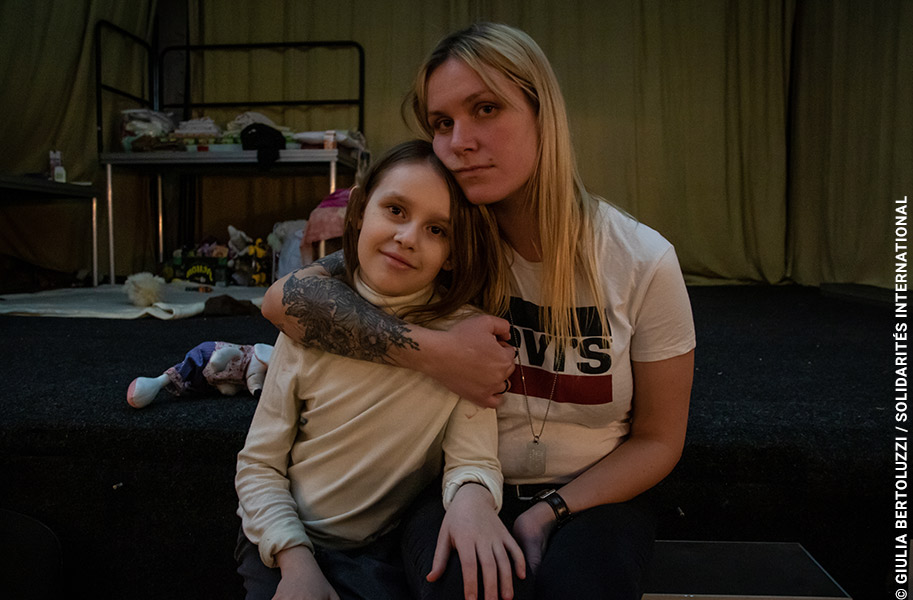
08. “I found out through Instagram that there was free transportation to Lviv for women and children. When we got on the bus, the coordinator asked us if we had found a place to stay. I said no, because we didn’t know what time we would arrive. He then said that there was an option to stay overnight in a theatre and that there would be all the required necessities. And it was true. There is a shower, a toilet, a washing machine, a kitchen. We slept well. The little one was happy to sleep on a stage for the first time in her life. It’s warm here, which is the most important thing. And we have a roof over our heads. There’s a bomb shelter down here with an extra exit. What else do you need at a time like this to feel safe and calm? […] None of us know where we are going. We’re not going anywhere. We don’t know what is waiting for us”, says Katia, a refugee, accompanied by her daughter Sacha.
